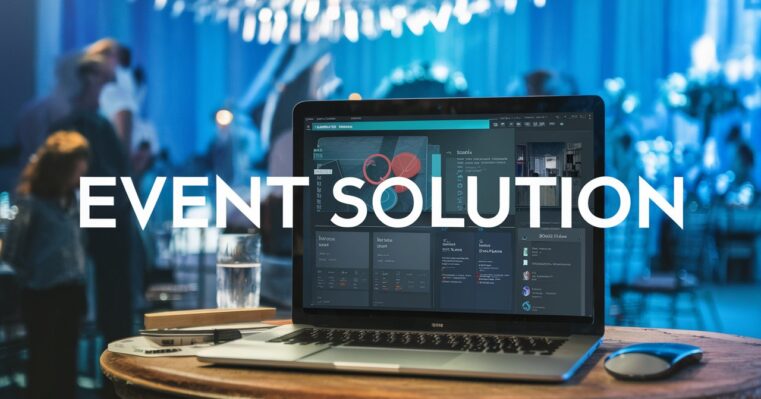Are you struggling with planning and executing events? Do you want to ensure that your events leave a lasting impact on your audience? Look no further, because event solution is here to help you out. In this comprehensive guide, we will cover everything you need to know about event solution – from its definition and benefits, to how to use it effectively, and even some real-life examples. So let's dive in and discover how event solution can revolutionize your event planning process.
What is Event Solution?
Event solution refers to the strategies, techniques, and tools used to plan, manage, and execute events successfully. It involves everything from conceptualizing an event idea, to coordinating logistics, marketing, and handling post-event tasks. Event solution aims to streamline and simplify the event planning process, while also ensuring a seamless and memorable experience for attendees.
The Benefits of Event Solution
- Increased Efficiency: With the help of event solution, planners can automate many time-consuming tasks, such as registration, ticketing, and communication. This leads to a more efficient and streamlined event planning process.
- Improved Organization: Event solution platforms offer tools to centralize and organize all aspects of an event, including guest lists, agendas, and budgets. This makes it easier for planners to stay on top of things and make necessary changes when needed.
- Enhanced Attendee Experience: By using event solution, planners can provide attendees with a smoother and hassle-free experience, from registration to post-event follow-ups. This contributes to higher attendee satisfaction and engagement.
- Cost Savings: Event solution helps minimize costs by automating processes, reducing the need for manual labor and paperwork. It also allows planners to easily track and manage their expenses, making it easier to stick to a budget.
Now that we have a better understanding of what event solution is and its benefits, let's explore how to use it effectively.
How to Use Event Solution
Step 1: Define Your Event Goals and Objectives
The first step in using event solution is to clearly define your event goals and objectives. This will help guide all your planning decisions and ensure that your event aligns with your overall objectives.
Example: If your goal is to increase brand awareness, you may want to focus on incorporating branding elements throughout the event, such as custom signage and branded merchandise.
Comparison: Without event solution, planners may struggle to keep track of these goals and could risk losing sight of their main objective.
Advice: Take the time to thoroughly discuss and outline your event goals with your team before moving forward with any planning decisions.
Step 2: Choose the Right Event Solution Platform
There are numerous event solution platforms available in the market today, each with its own unique features and benefits. It's crucial to choose one that best suits your specific event needs. Consider factors such as budget, event size, and desired features when making your decision.
Example: For a large-scale conference, you may need a platform that offers advanced registration and ticketing options, while for a smaller networking event, a more basic platform will suffice.
Comparison: Without an event solution platform, planners would have to rely on multiple tools or manual processes, which can be time-consuming and prone to errors.
Advice: Do thorough research and demos of different event solution platforms to determine which one is the best fit for your event.
Step 3: Create a Comprehensive Event Plan
With your goals and chosen platform in place, it's time to create a comprehensive event plan. This should include details such as the event timeline, budget, marketing strategy, and logistics.
Example: Your event plan may include tasks such as sending out invitations, securing vendors, creating promotional materials, and organizing transportation for attendees.
Comparison: Without a detailed event plan, planners may struggle to keep track of all the moving parts of an event and could risk oversights and mistakes.
Advice: Make sure to involve all stakeholders and team members in creating the event plan to ensure a well-rounded and successful event.
Step 4: Use Event Solution Tools to Automate Tasks
Once you have your event plan in place, it's time to utilize the tools provided by your chosen event solution platform to automate tasks and streamline processes. This includes registration, ticketing, communication, and even post-event tasks such as sending out surveys and thank-you emails.
Example: Using an event solution platform, you can set up automated emails to be sent out to attendees with event details and reminders leading up to the event. This saves time and ensures that all attendees are up-to-date with event information.
Comparison: Without event solution, planners would have to manually send out emails and reminders, which can be tedious and time-consuming.
Advice: Take advantage of the automation features offered by your event solution platform to save time and effort.
Real-life Examples of Successful Event Solutions
- Salesforce Dreamforce: This annual event is known for its impressive use of technology to enhance the overall attendee experience. From personalized agendas to interactive booths and live streaming, Salesforce utilizes event solution to create a seamless and engaging event.
- TEDxSydney: This event used event solution to allow attendees to customize their own agendas, access live streams, and participate in live polls and QA sessions. This resulted in higher attendee engagement and satisfaction.
- Adobe Summit: By utilizing event solution, Adobe was able to offer attendees a virtual reality experience, real-time personalization, and networking opportunities through their mobile app. This helped create a unique and memorable event for all attendees.
FAQs about Event Solution
Q1: What types of events can benefit from using event solution?
- Conferences and trade shows
- Corporate events and meetings
- Weddings and social gatherings
- Non-profit galas and fundraisers
Q2: How can event solution help with event marketing?
Event solution platforms offer various marketing tools, such as email campaigns, social media integrations, and analytics, to help promote your event and reach a wider audience.
Q3: Can event solution be used for virtual events?
Yes, many event solution platforms offer features specifically catered towards virtual events, such as live streaming, interactivity, and virtual networking.
Q4: Is event solution only for large-scale events?
No, event solution can be used for events of all sizes. There are platforms available that cater to different event sizes and budgets.
Q5: Are there any free event solution options available?
Yes, there are free event solution platforms available, but they may have limited features and capabilities compared to paid ones.
Conclusion
From defining goals and choosing the right platform, to creating a comprehensive event plan and utilizing automation tools, event solution plays a crucial role in organizing successful events. Its benefits, such as increased efficiency, improved organization, enhanced attendee experience, and cost savings, make it an essential tool for event planners. With real-life examples and FAQs, we hope this guide has provided you with a better understanding of event solution and how to use it effectively for your next event. So why wait? Start implementing event solution into your event planning process and see the difference it makes.





